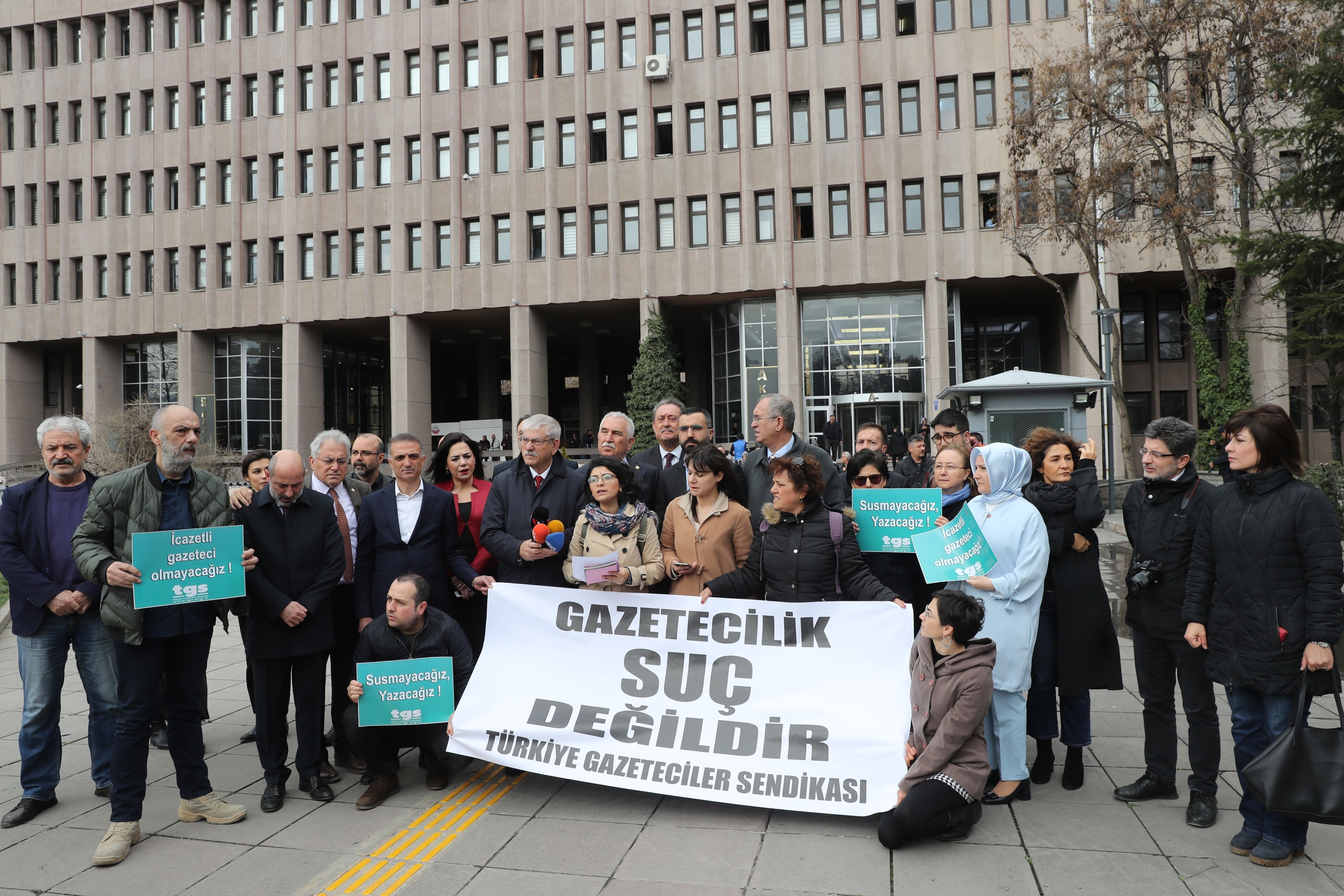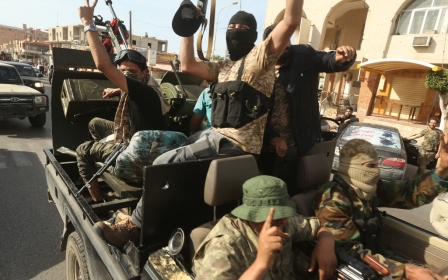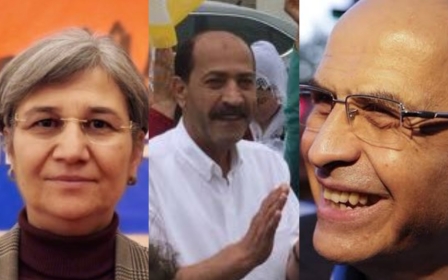Turkey detains two opposition journalists on charges of 'espionage'

Turkish police detained two prominent journalists on charges of espionage early on Monday in Ankara, according to media reports, causing an uproar among colleagues and rights organisations.
OdaTV, an online news outlet known for its critical views on the government, reported that police has arrested its Ankara managing editor, Muyesser Yildiz, and confiscated all of her digital belongings, including phone and laptop, following a search of her house.
Police also detained Tele1 TV Ankara representative Ismail Dukel as part of the same investigation, the reports said.
Yildiz’s lawyer told Turkish media that the prosecutor had a warrant to detain her and others for four days. Government-aligned the Daily Sabah claimed that Yildiz had been arrested because of her frequent contacts with a military officer called EB.
The report alleged that Yildiz and the officer committed 29 counts of “military criminal acts” and had meetings on Turkey’s military deployments in Libya.
New MEE newsletter: Jerusalem Dispatch
Sign up to get the latest insights and analysis on Israel-Palestine, alongside Turkey Unpacked and other MEE newsletters
'You research, you confirm, you analyse. This is how it is supposed to be and it isn’t a crime'
- Toygun Atilla, reporter
“She didn’t write about the information she has provided the officer, therefore it raised suspicions on whether she was conducting espionage,” Sabah said. The officer was also in detention.
The detentions caused an uproar on social media and condemnations from rights groups.
Reporters Without Borders' representative in Turkey, Erol Onderoglu, called for the journalists' immediate release if there was no evidence of any crime committed under a democratic order and the rule of law.
“[No one] should damage the rule of law,” Onderoglu said in a statement.
Others underlined the fact that a journalist does not need to write everything they hear from their sources.
“How could a journalist be detained because she didn’t write about the things she discussed with her source?”, Nevsin Mengu, a prominent journalist, said. “I just cannot understand it anymore.”
Toygun Atilla, another reporter, said that journalists do not need to report on everything they hear.
“You research, you confirm, you analyse. This is how it is supposed to be and it isn’t a crime,” he said.
Dangerous process
Many former high-ranking military officers and military judges issued support for Yildiz on Twitter, while Ozgur Ozel, an MP from main opposition party CHP, said that the government was putting the country through "a dangerous" process by increasing pressure on the media.
"We condemn all these [police] operations and we are closely monitoring this process," he said.
In March, police arrested two senior editors and a reporter from OdaTV on charges of revealing state secrets.
Baris Pehlivan, OdaTV's editor-in-chief, Baris Terkoglu, news director, and reporter Hulya Kilinc were arrested following a report that revealed photos of a member in Turkey's National Intelligence Organisation (MIT) who was among the first Turkish soldiers killed during military operations in Libya.
'We condemn all these [police] operations and we are closely monitoring this process'
- Ozgur Ozel, CHP MP
Terkoglu and Yildiz had been previously arrested in 2011, alongside many other OdaTV employees, as part of the Ergenekon investigations, the legal cases pushed by followers of prominent exiled cleric Fethullah Gulen within Turkey's judiciary.
Terkoglu and Yildiz spent nearly two years in prison before being released.
The ruling AKP and President Recep Tayyip Erdogan, who were allies of Gulen at the time of the arrests, have since fallen out, with the former blaming the latter for an attempted coup in 2016.
The arrests and detentions of journalists in Turkey are extremely common. The Committee to Protect Journalists (CPJ) reported that Turkey had 47 journalists in custody, ranking second place worldwide after China. Turkey has also ranked 154 out of 180 countries in the Reporters Without Borders' 2020 World Press Freedom Index.
Middle East Eye delivers independent and unrivalled coverage and analysis of the Middle East, North Africa and beyond. To learn more about republishing this content and the associated fees, please fill out this form. More about MEE can be found here.




